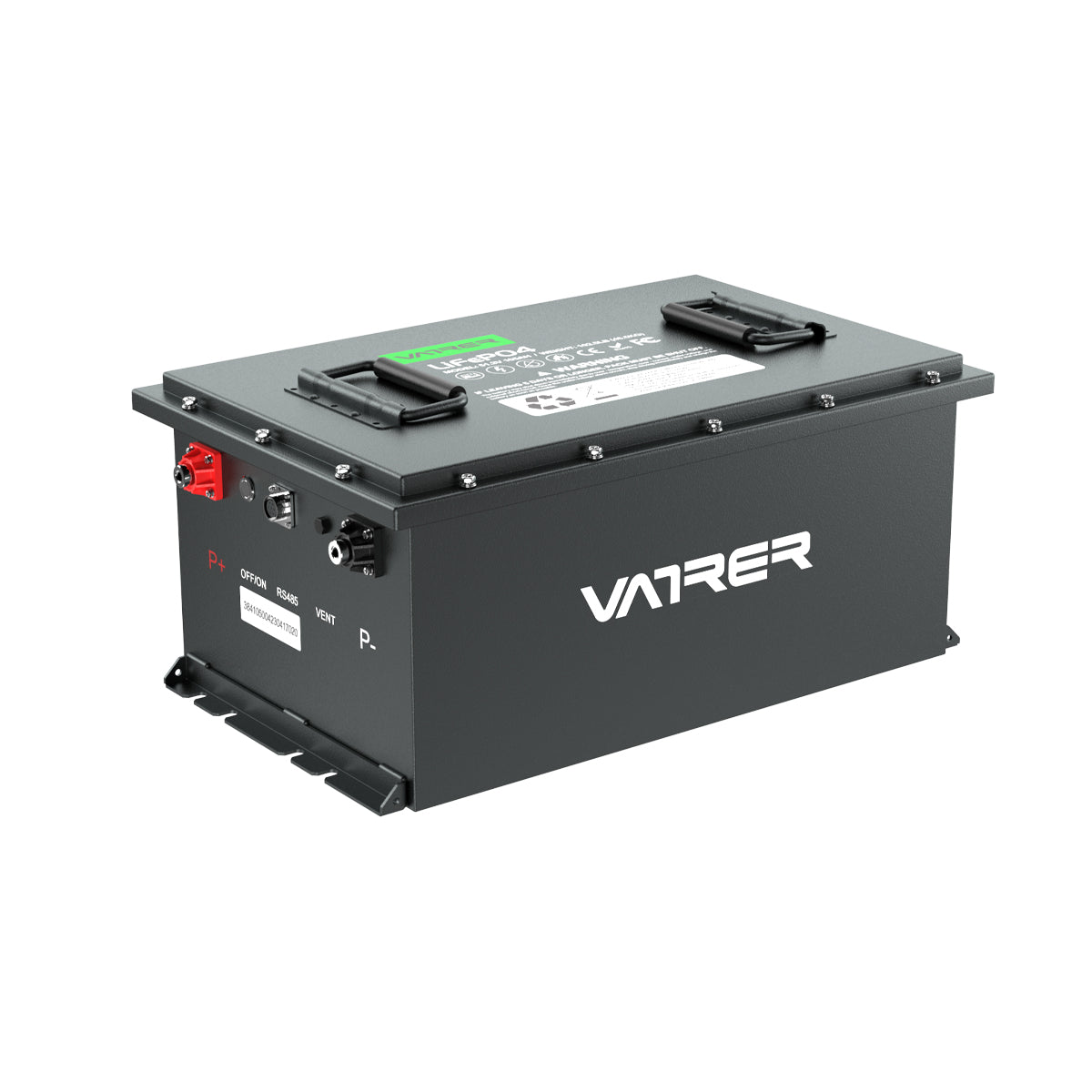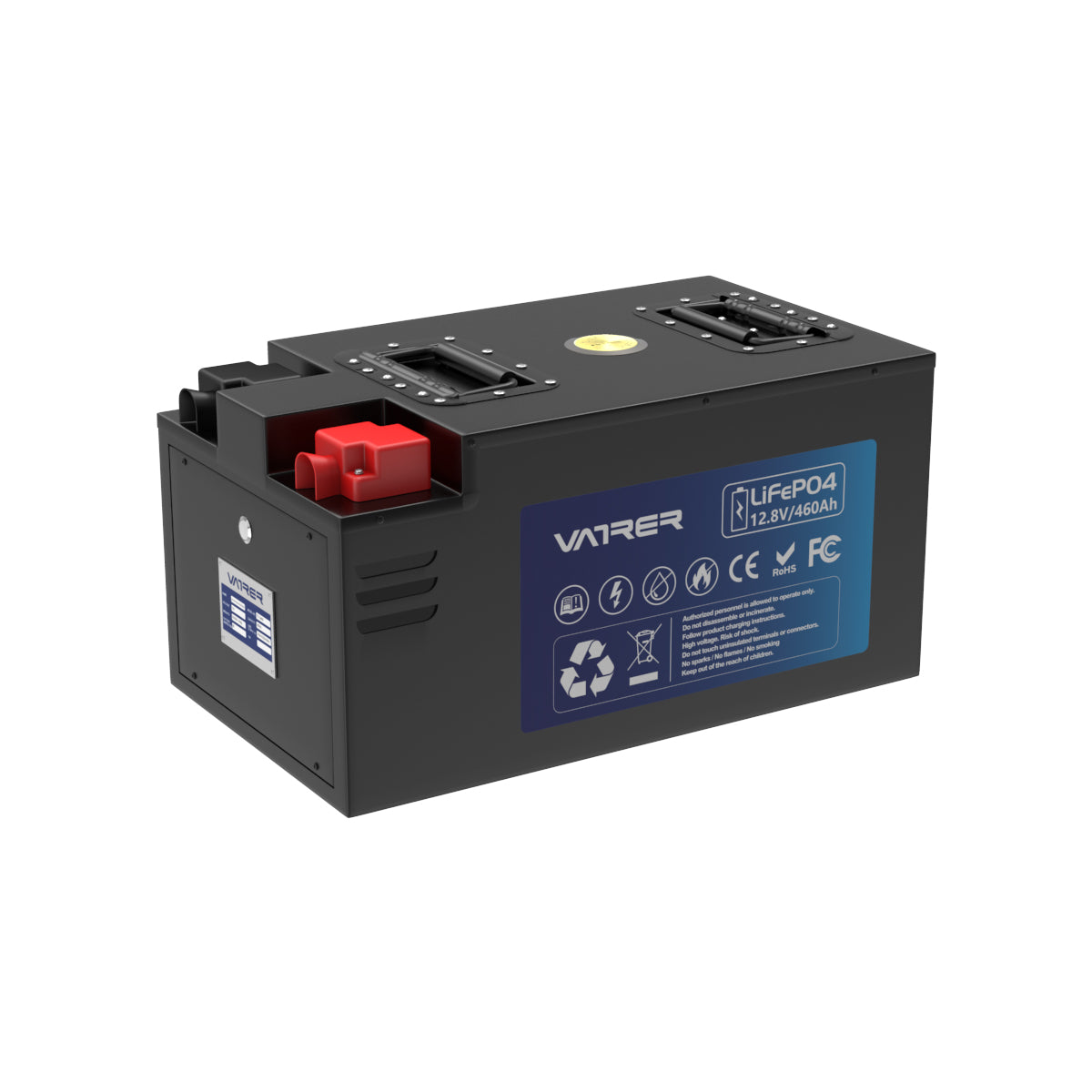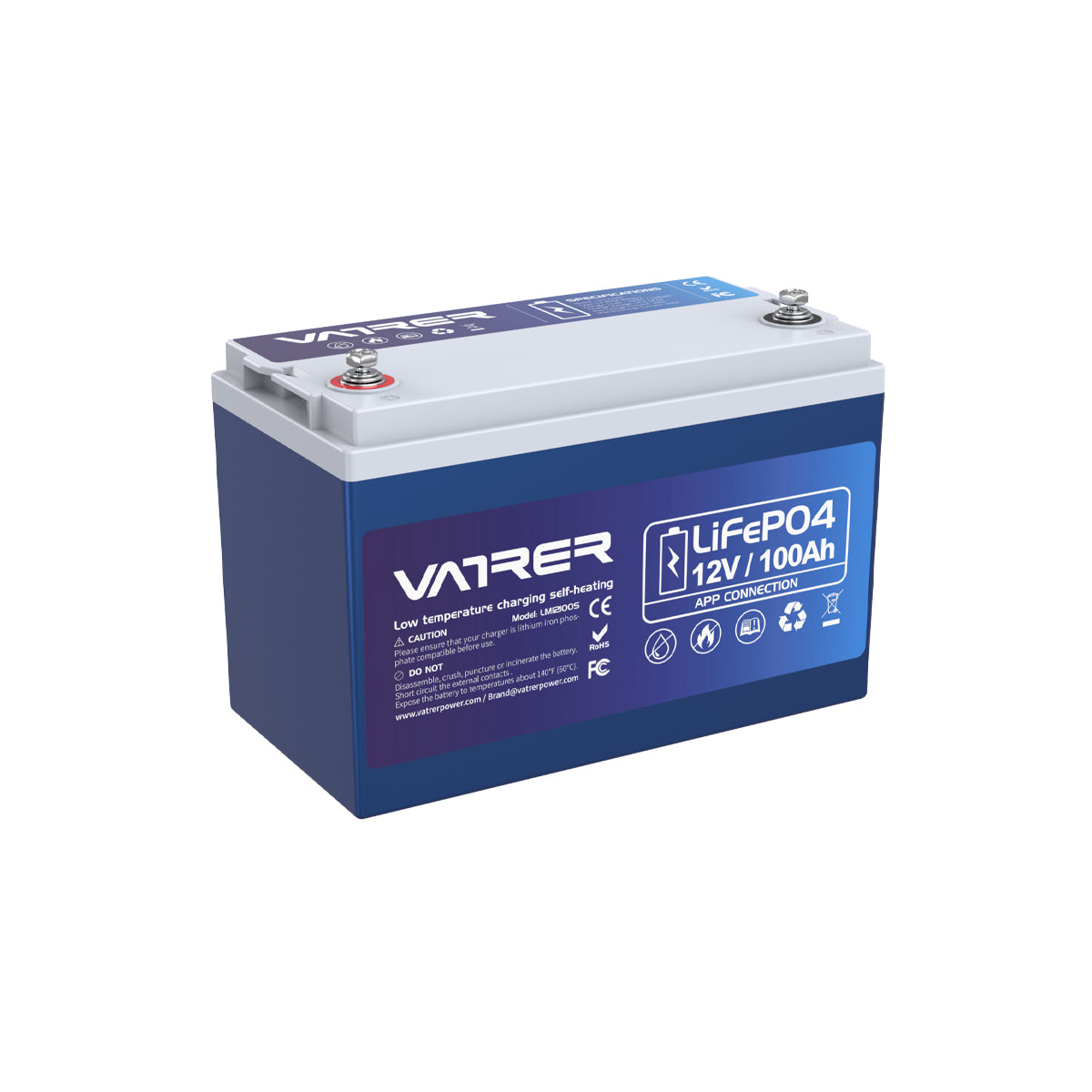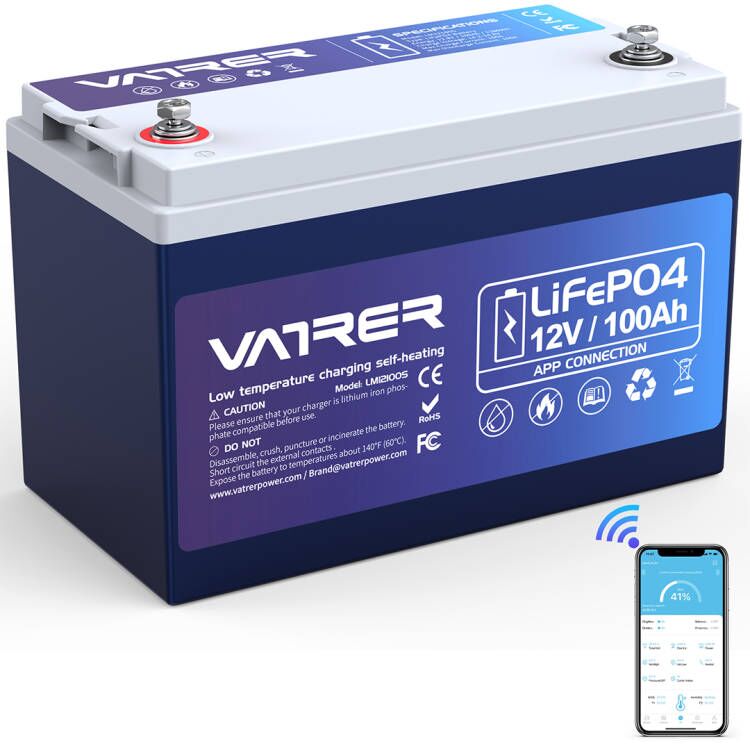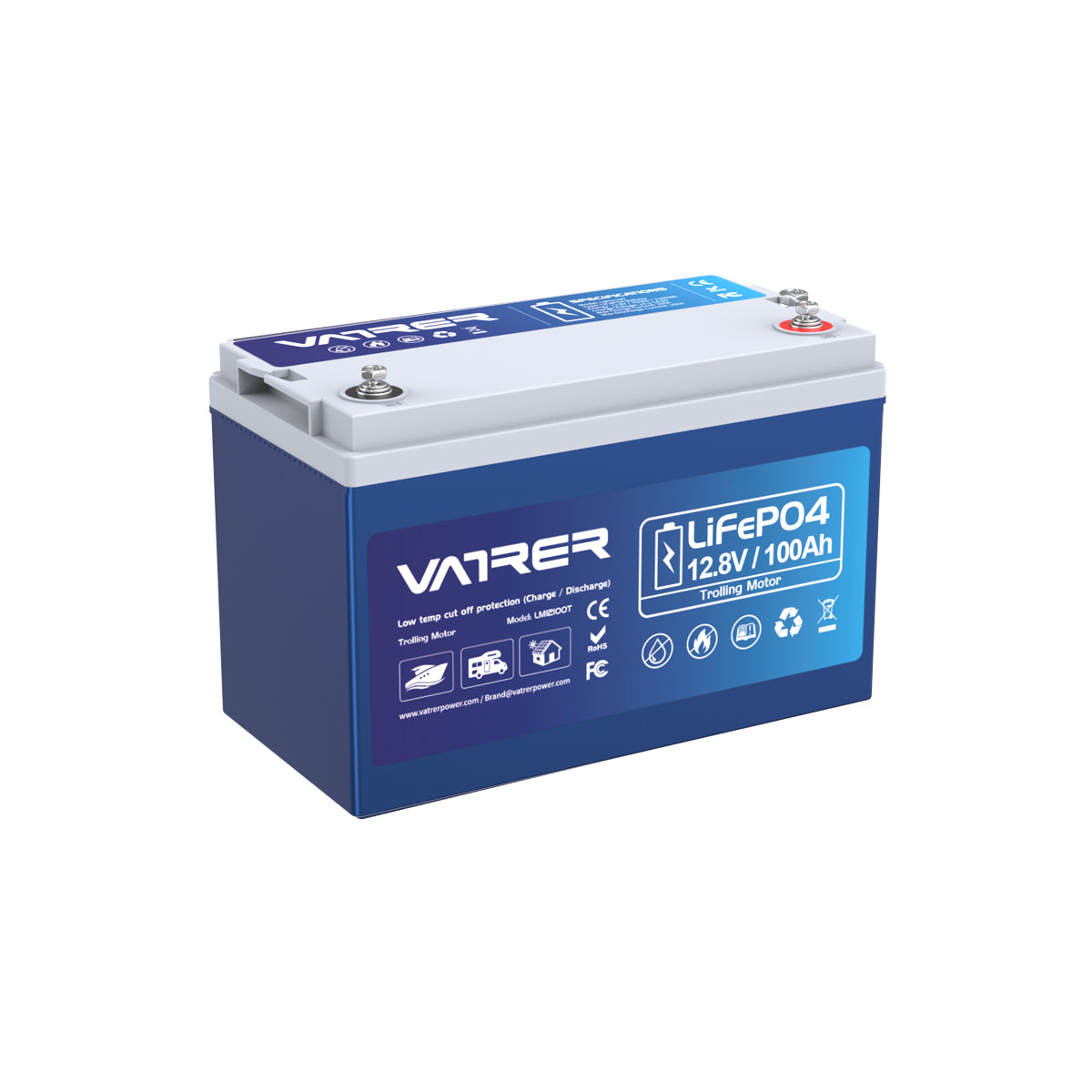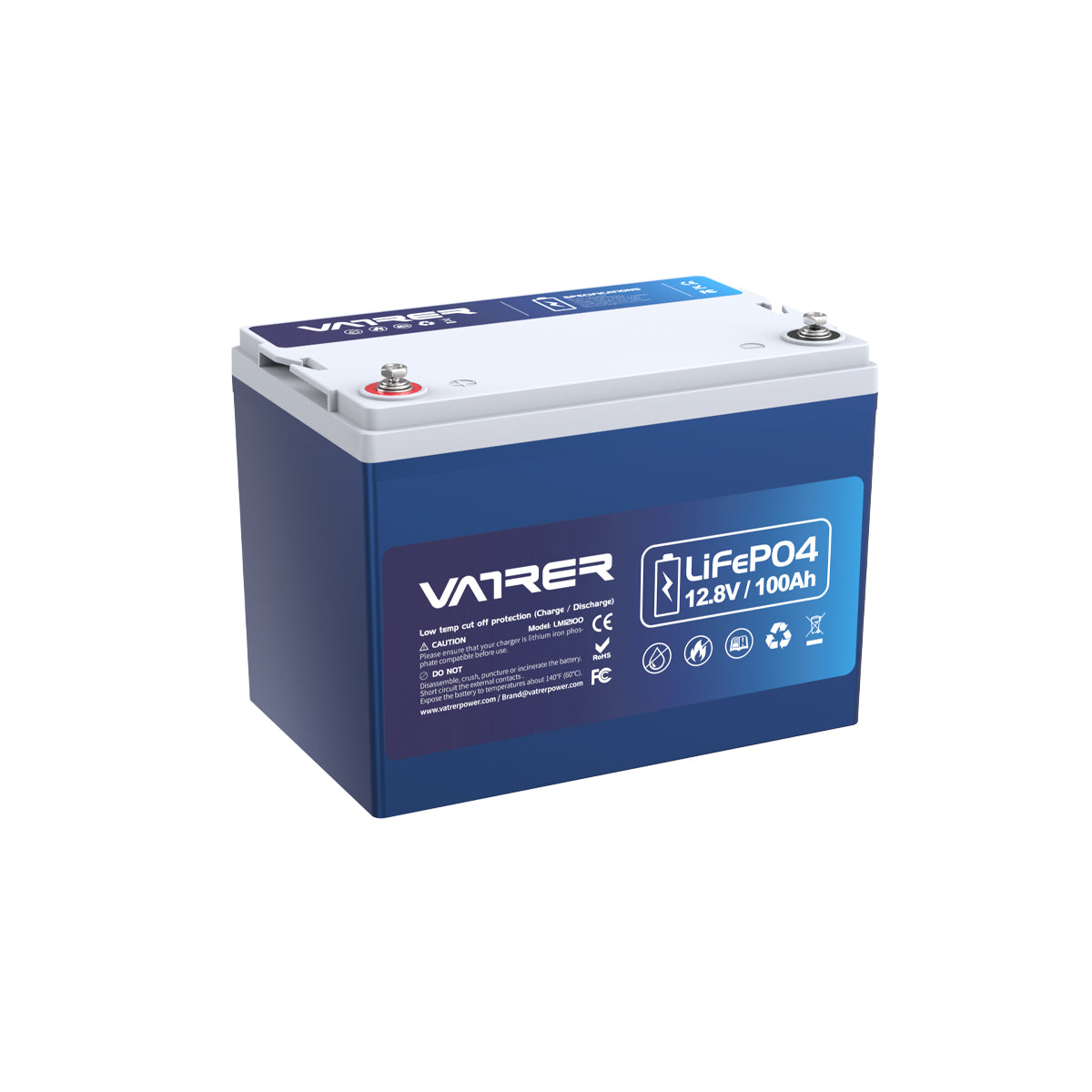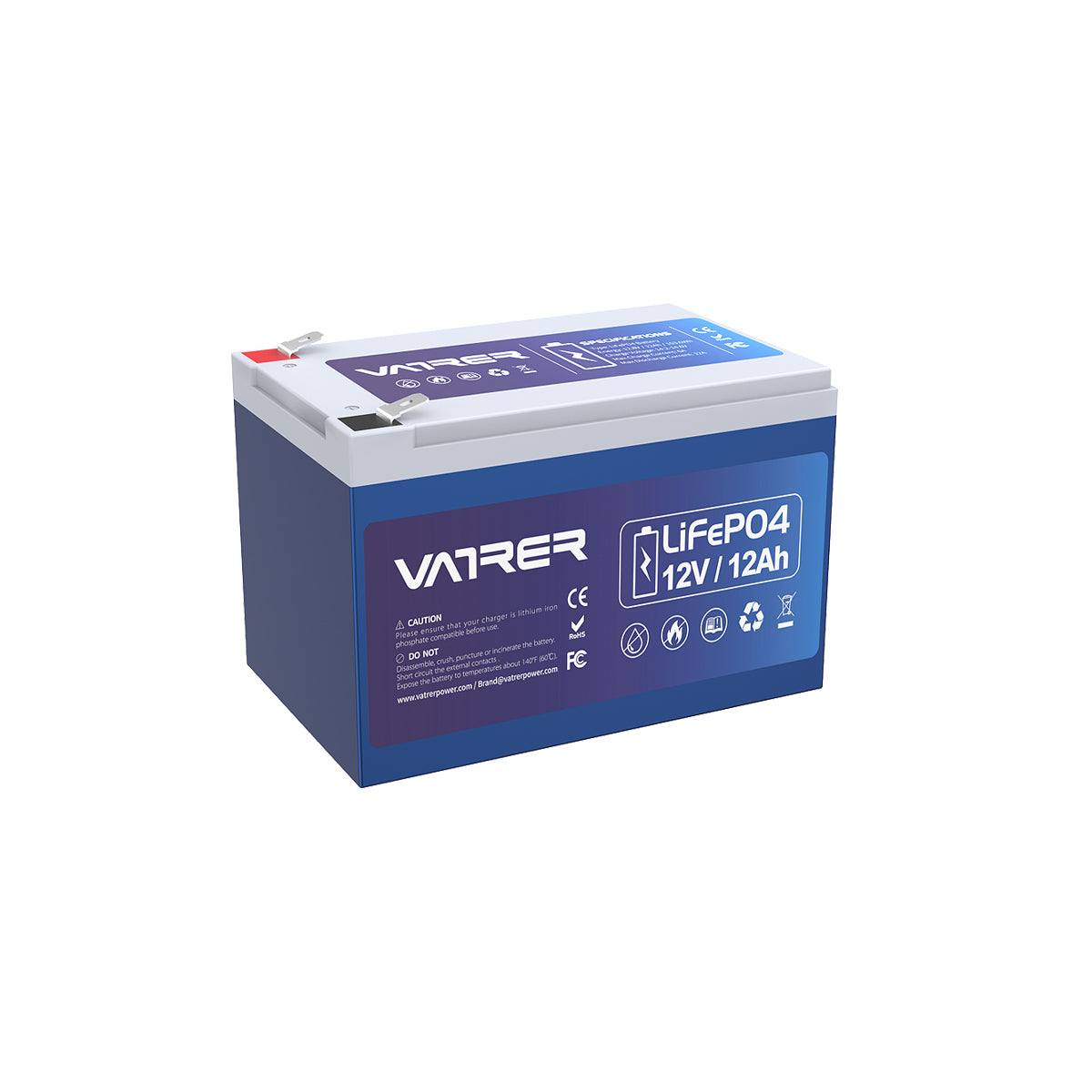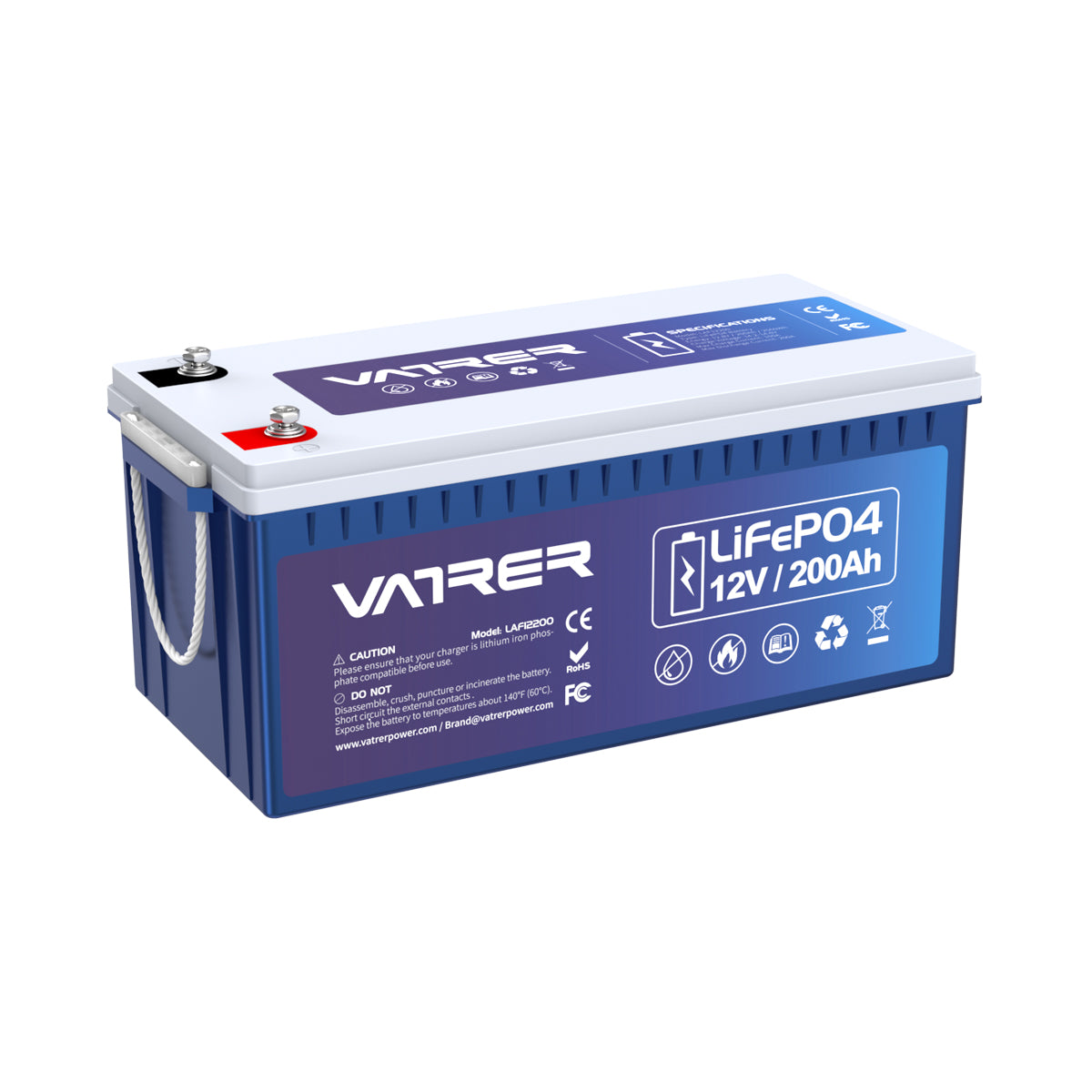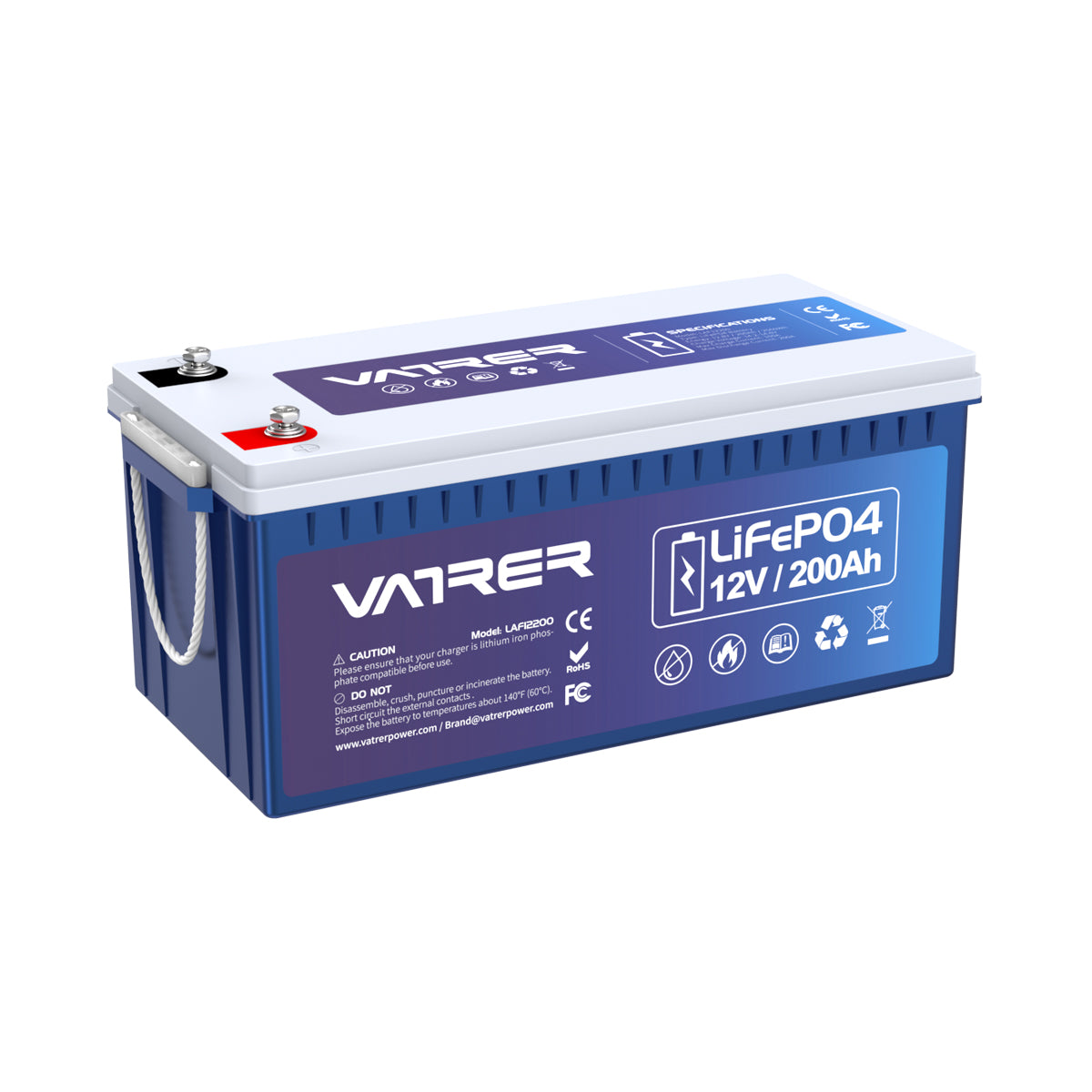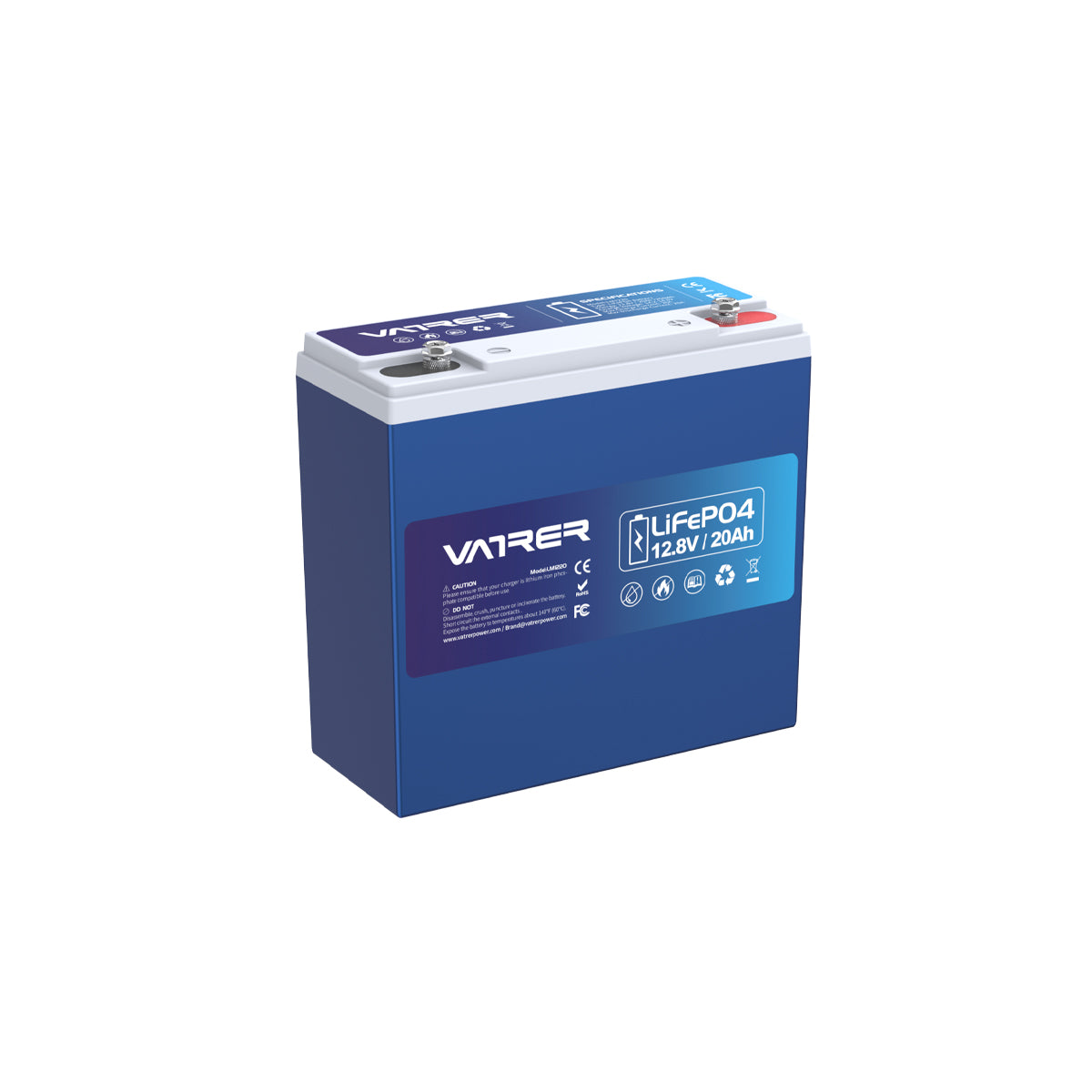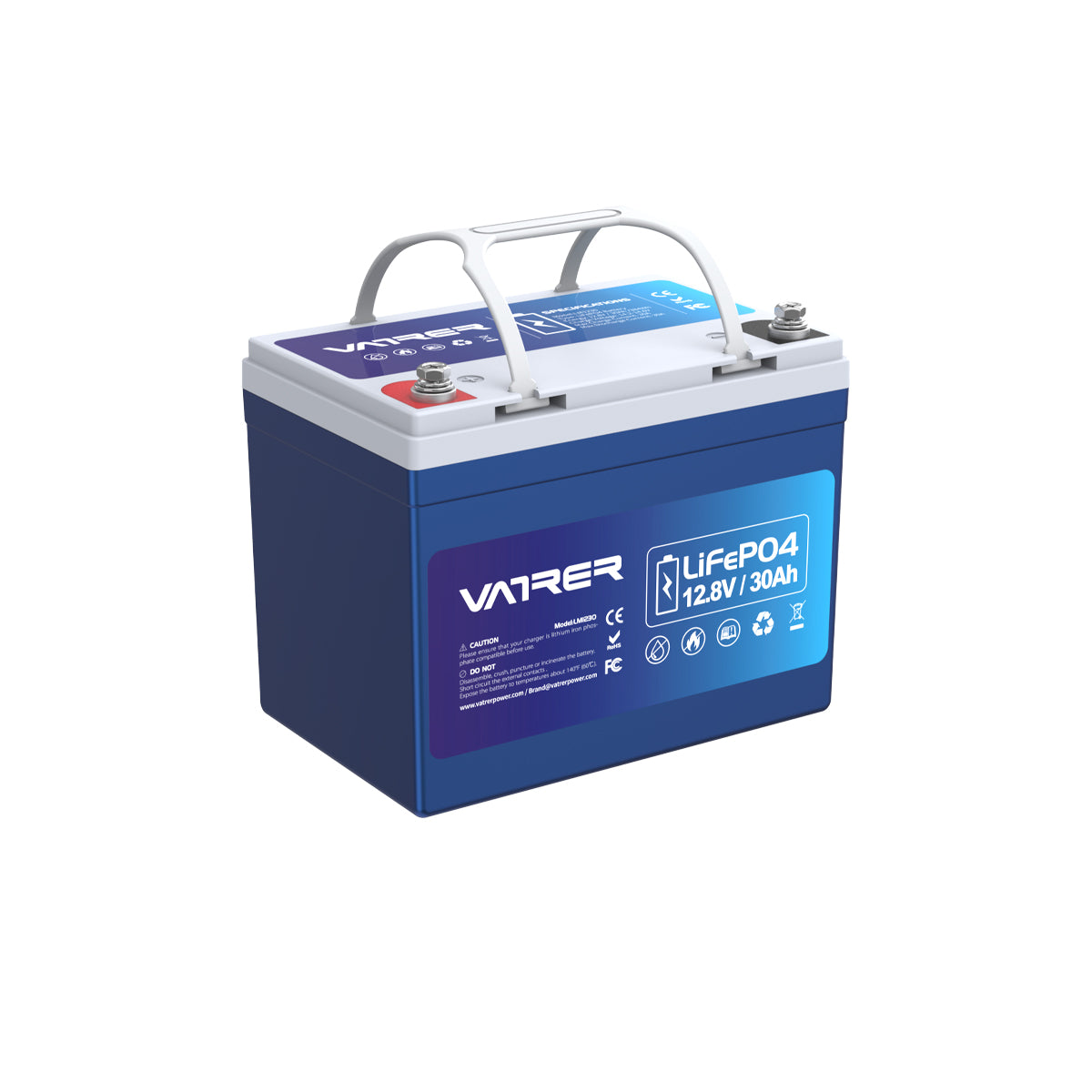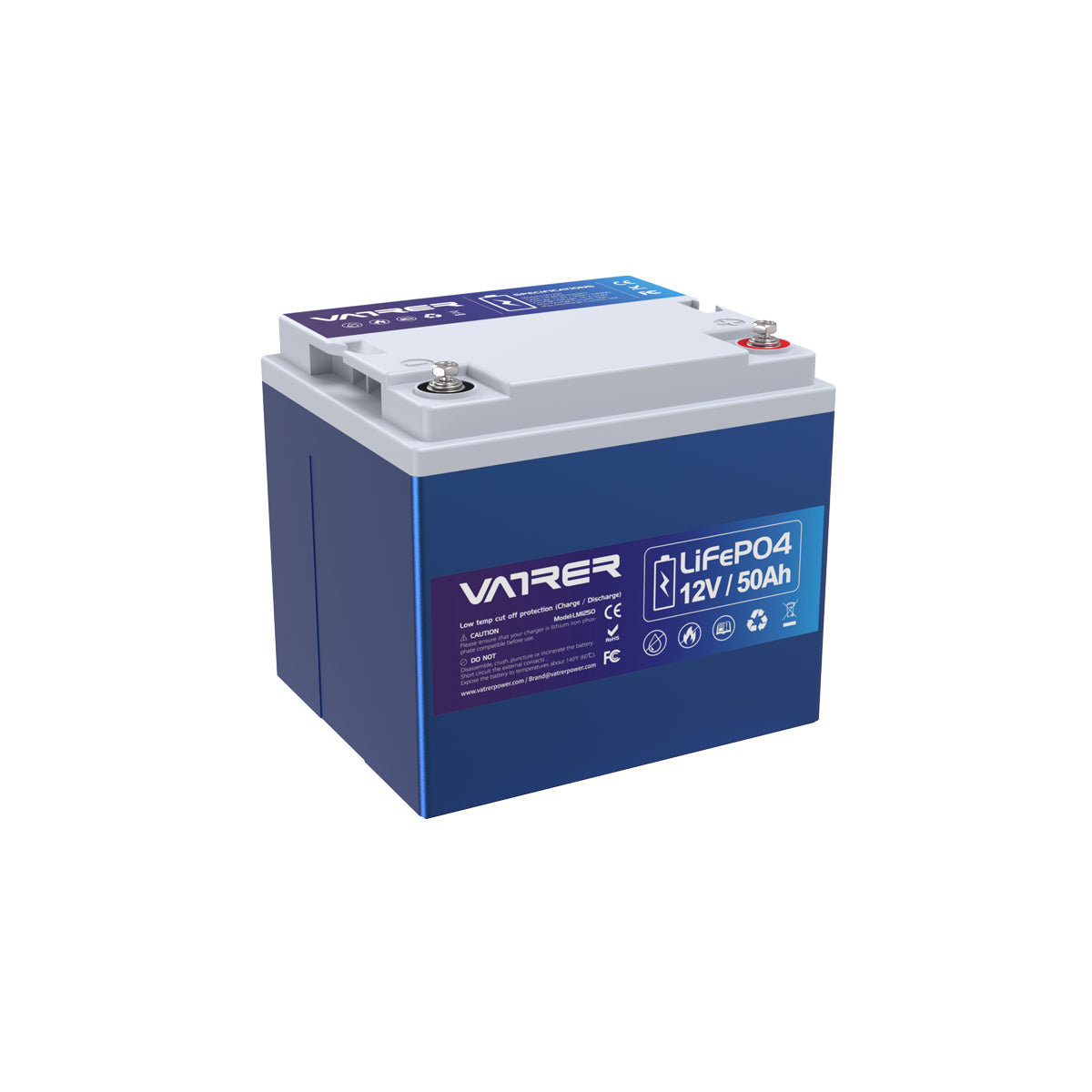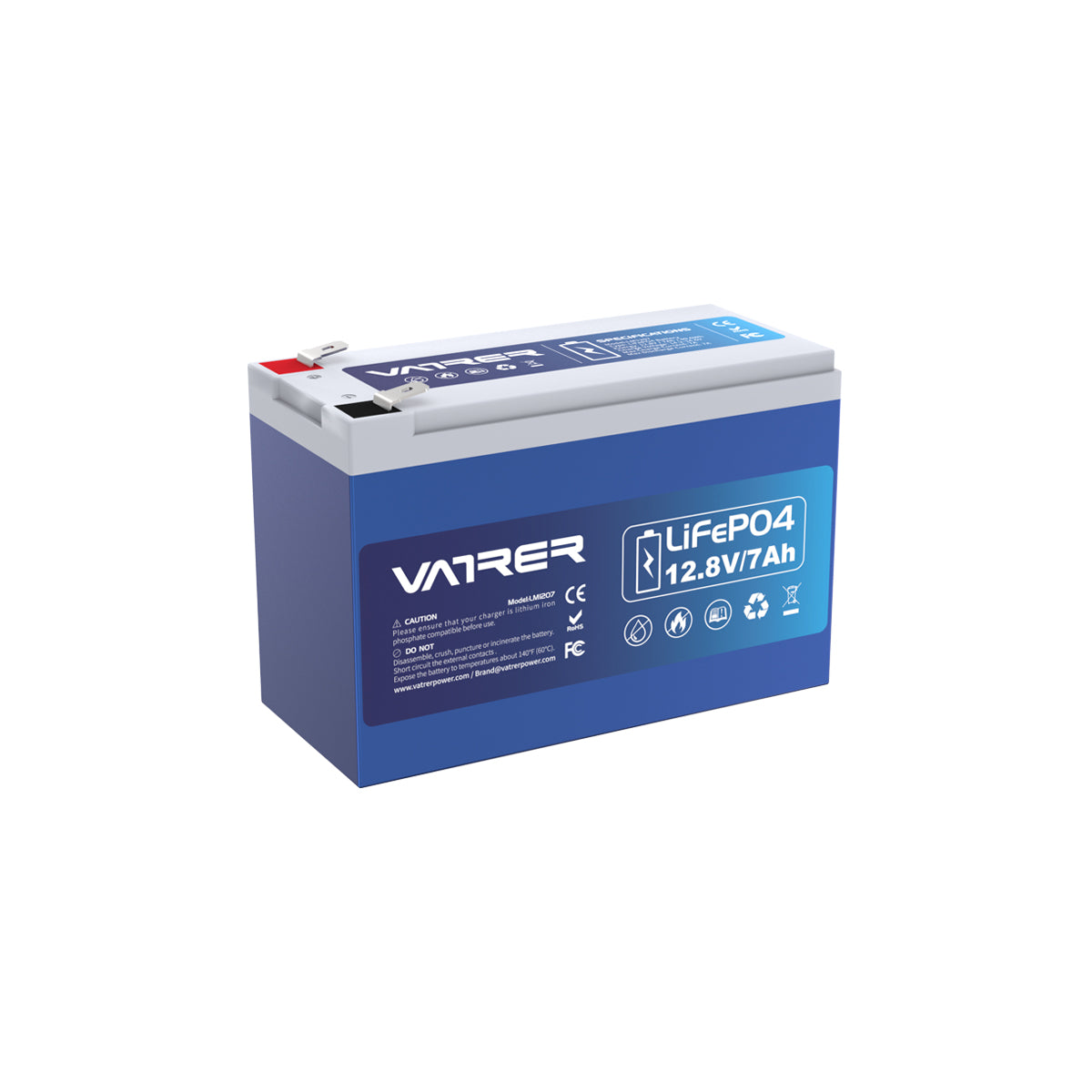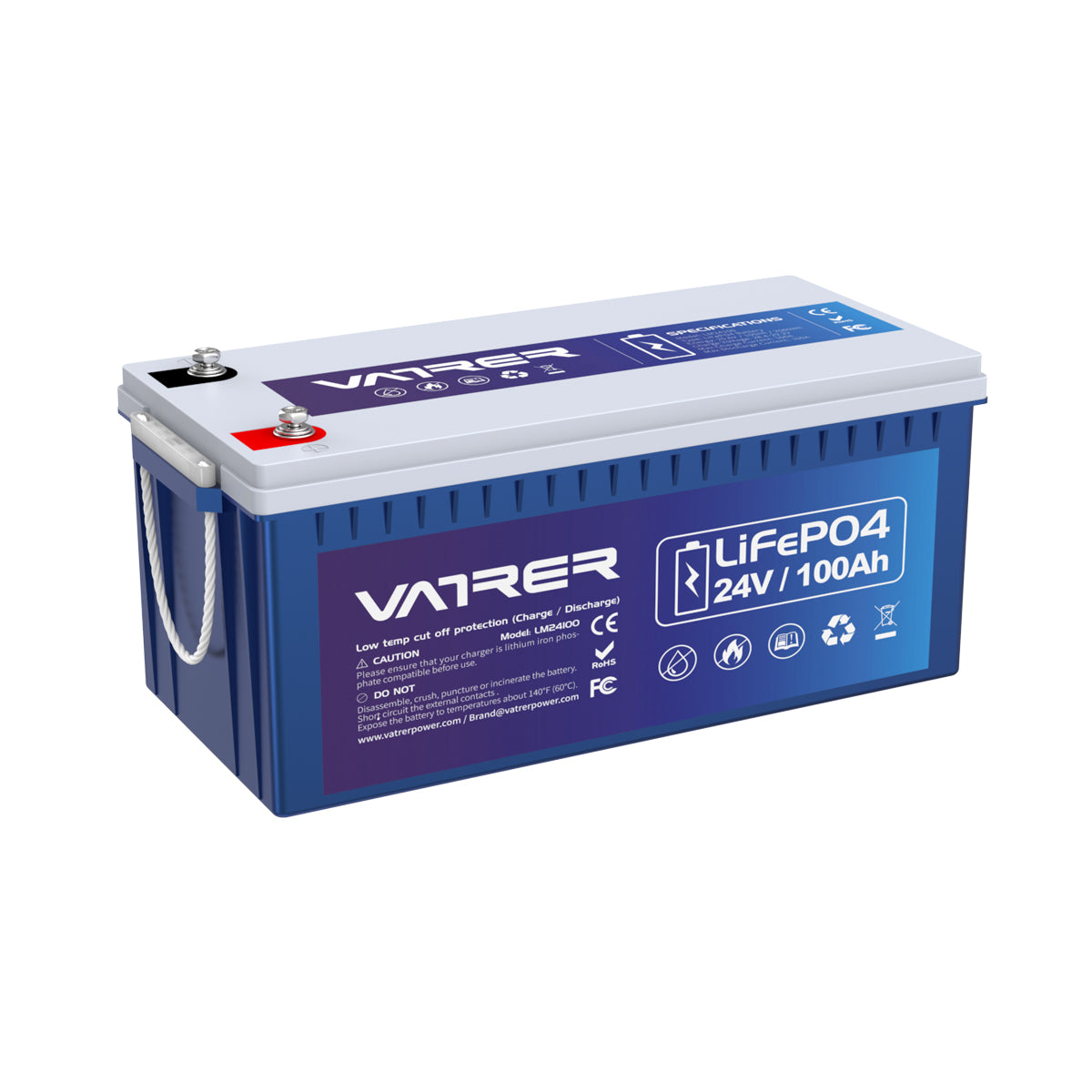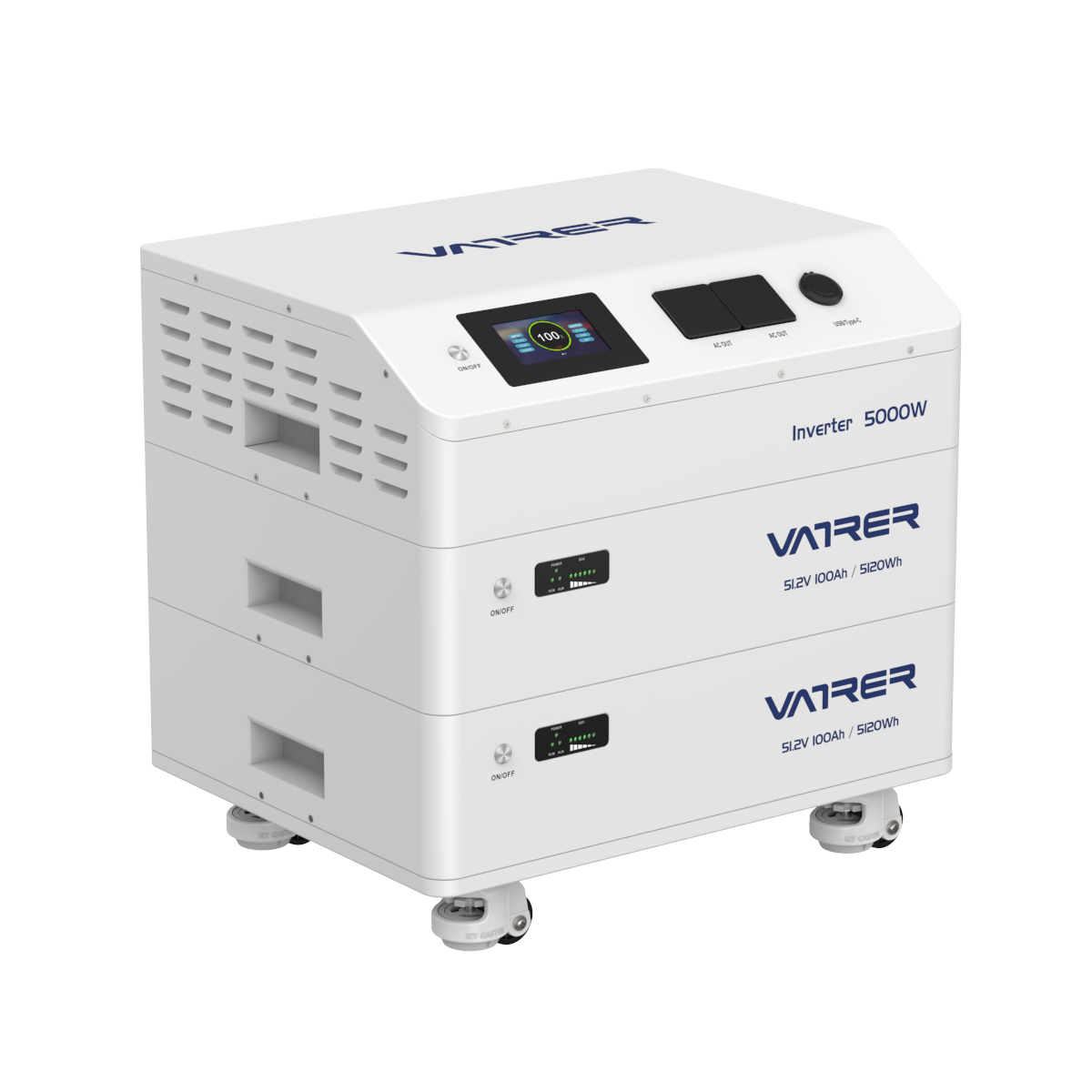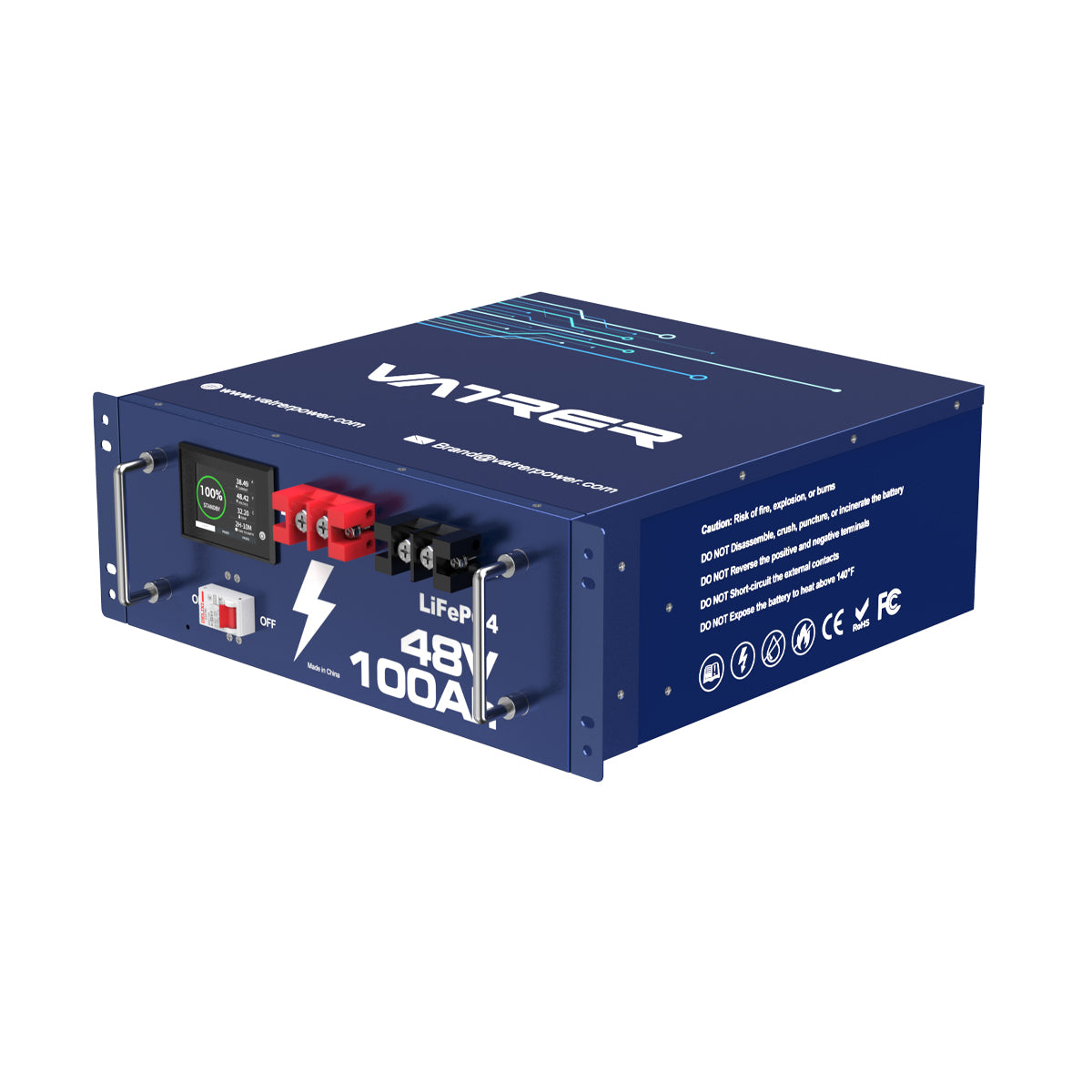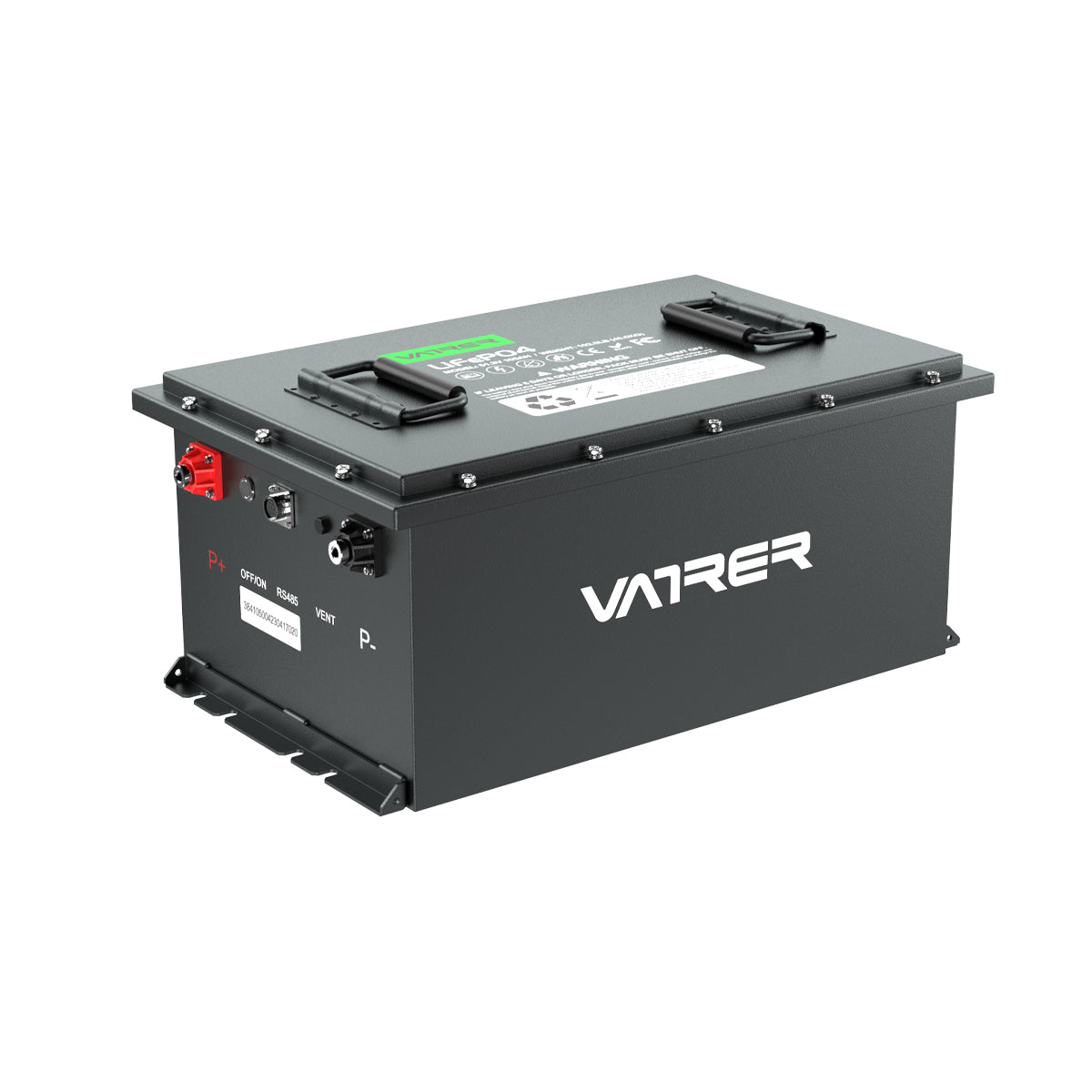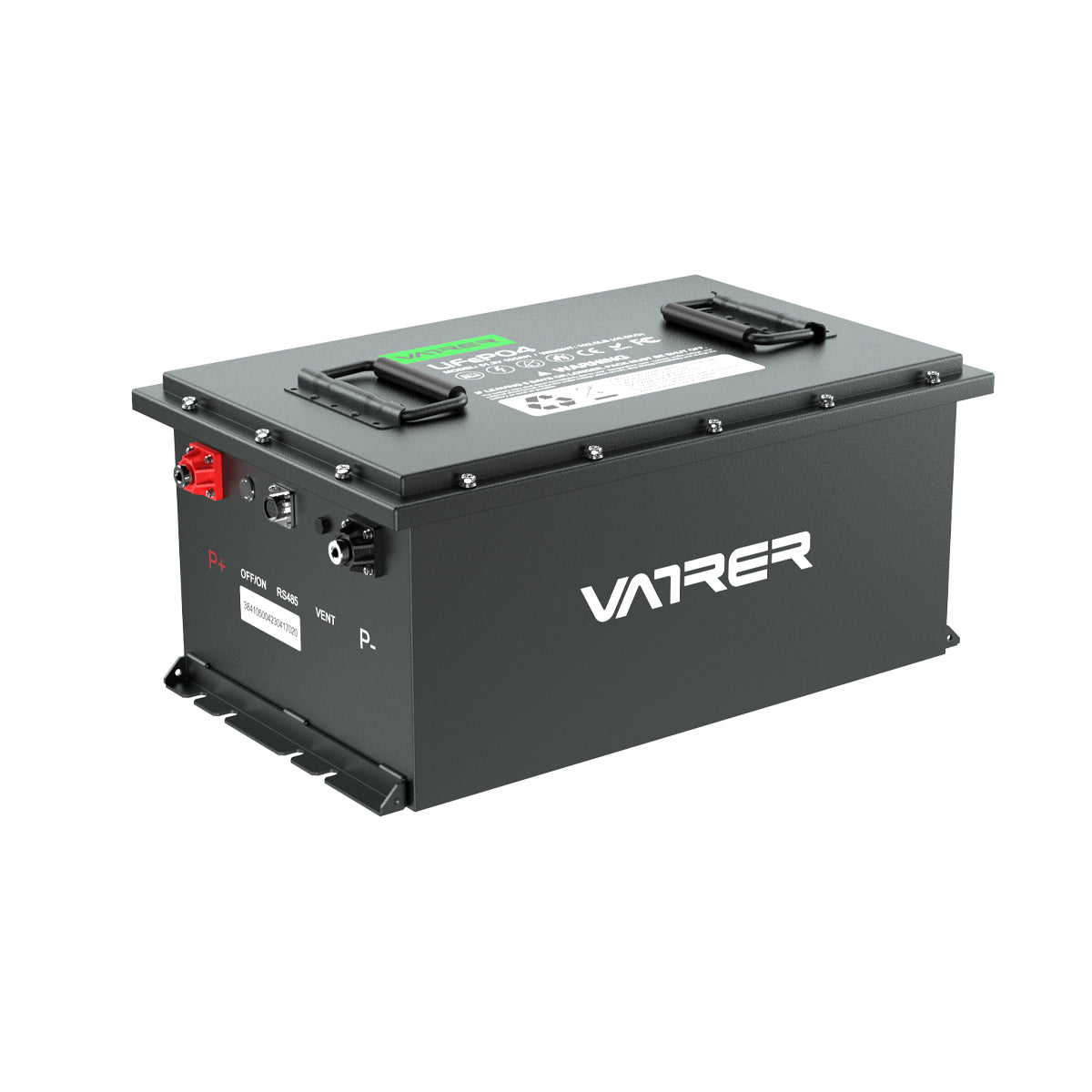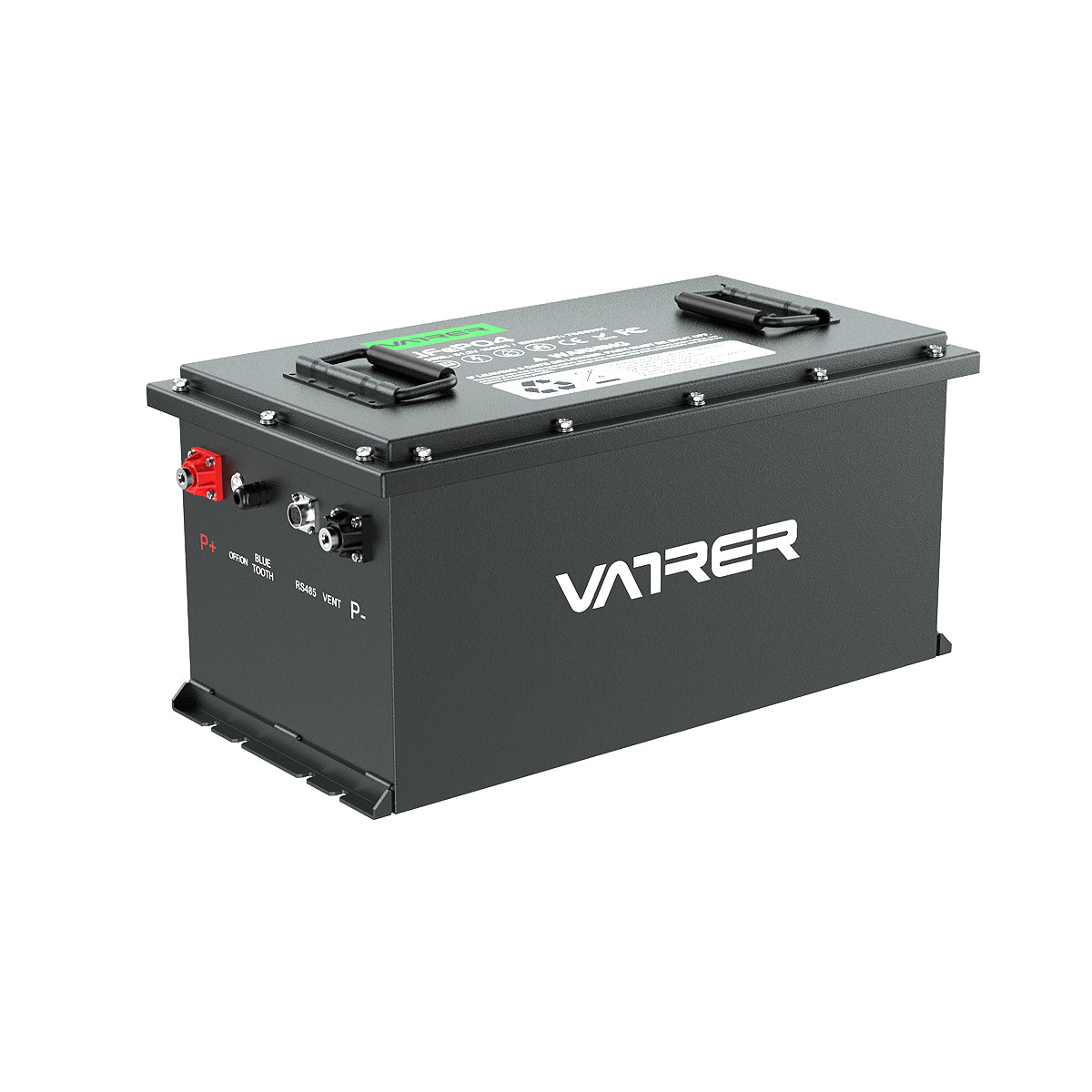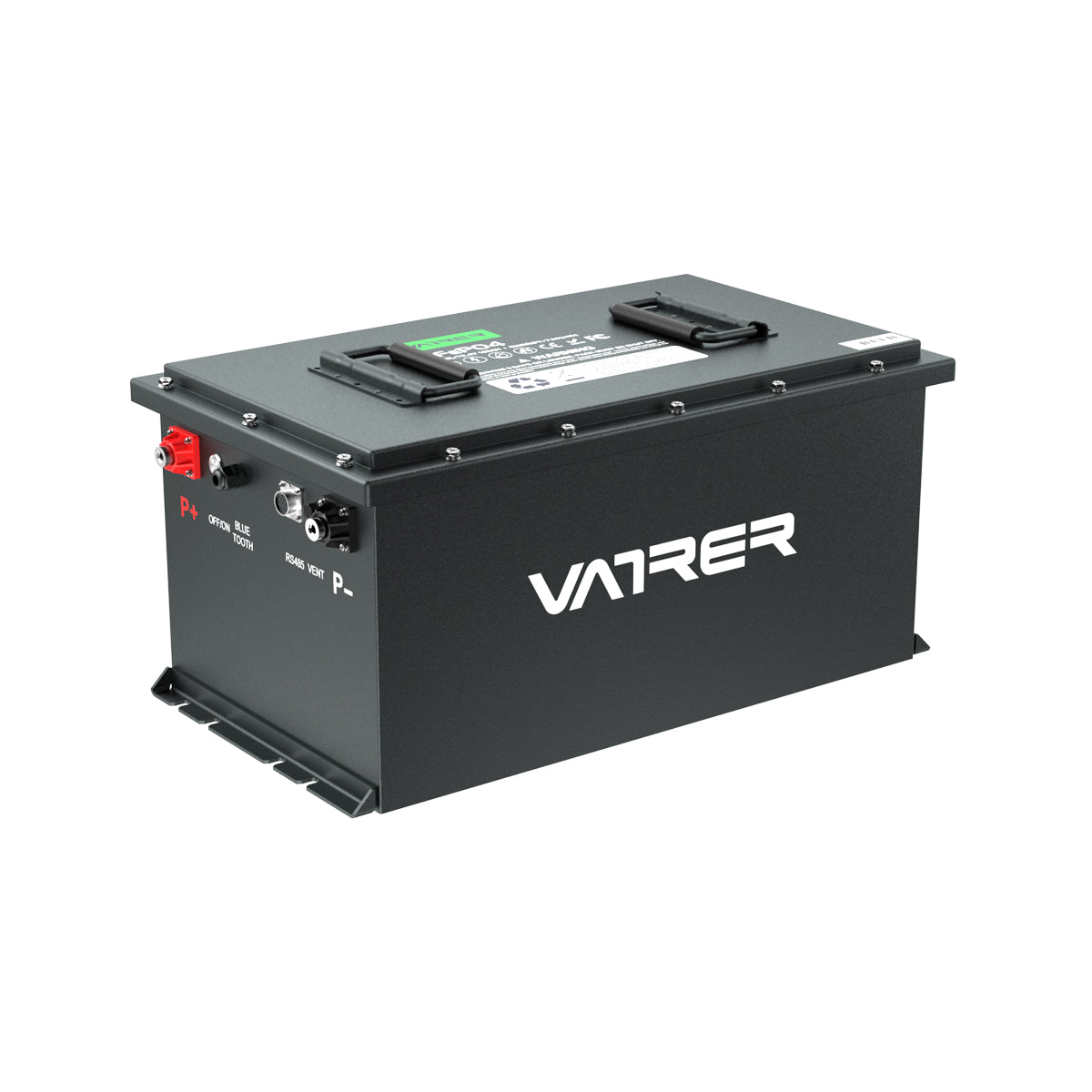Table of Contents
- 1. Introduction
- 2. Types of RV Batteries
- 3. Key Features to Consider
- 4. Top RV Batteries for Dry Camping
- Vatrer 12V 100Ah LiFePO4 Battery
- Vatrer 12V 200Ah LiFePO4 Battery
- Vatrer 12V 300Ah LiFePO4 Battery
- Vatrer 12V 460Ah LiFePO4 Battery
- 5. Comparison of Top Picks
- Pros and Cons of Each Battery
- Vatrer 12V 100Ah LiFePO4 Battery
- Vatrer 12V 200Ah LiFePO4 Battery
- Vatrer 12V 300Ah LiFePO4 Battery
- Vatrer 12V 460Ah LiFePO4 Battery
- Best Use Cases for Each Type
- Vatrer 12V 100Ah LiFePO4 Battery
- Vatrer 12V 200Ah LiFePO4 Battery
- Vatrer 12V 300Ah LiFePO4 Battery
- Vatrer 12V 460Ah LiFePO4 Battery
- 6. Installation and Maintenance Tips
- 7. Conclusion
1. Introduction
Definition of Dry Camping
Dry camping, also known as boondocking, refers to camping in an RV without access to external utilities such as water, electricity, or sewer connections. This form of camping allows enthusiasts to explore remote locations and enjoy nature without the constraints of traditional campgrounds. However, it requires self-sufficiency, particularly in terms of power supply, which makes the choice of RV battery crucial.

Importance of Choosing the Right RV Battery
Selecting the right RV battery is essential for a successful dry camping experience. The battery serves as the primary power source for all electrical needs, including lighting, appliances, and electronic devices. A reliable battery ensures that campers can enjoy their trip without interruptions or the need for frequent recharging. Therefore, understanding the different types of RV batteries and their features is vital for making an informed decision.
2. Types of RV Batteries
Lead-Acid Batteries
Lead-acid batteries are the most traditional type of RV battery. They are known for their affordability and availability. These batteries use a chemical reaction between lead plates and sulfuric acid to store and release energy. However, they require regular maintenance, including checking water levels and ensuring proper ventilation to prevent gas buildup.
AGM (Absorbent Glass Mat) Batteries
AGM batteries are a type of lead-acid battery that uses a fiberglass mat to absorb the electrolyte. This design makes them spill-proof and maintenance-free, offering a significant advantage over traditional lead-acid batteries. AGM batteries are known for their durability and ability to deliver high currents, making them suitable for RV applications.
Lithium-Ion Batteries
Lithium-ion batteries are the latest advancement in RV battery technology. They offer several benefits, including a longer lifespan, lighter weight, and faster charging times compared to lead-acid and AGM batteries. Although they are more expensive upfront, their efficiency and longevity can make them a cost-effective choice in the long run.
3. Key Features to Consider
Capacity and Power Output
The capacity of an RV battery, measured in amp-hours (Ah), determines how long it can power your RV's electrical systems. A higher capacity means longer runtime between charges. Power output, measured in watts, indicates the battery's ability to deliver energy to high-demand devices.
Lifespan and Durability
The lifespan of a battery is a critical factor, especially for frequent campers. Lithium-ion batteries typically offer the longest lifespan, often exceeding 10 years, while lead-acid and AGM batteries may last 3-5 years. Durability is also important, as RV batteries must withstand vibrations and temperature fluctuations.
Charging Time and Efficiency
Charging time varies between battery types. Lithium-ion batteries charge faster and more efficiently than lead-acid and AGM batteries. Efficient charging is crucial for maximizing the time spent enjoying your camping experience rather than waiting for the battery to recharge.
Weight and Size
Weight and size are important considerations, particularly for RVs with limited space and weight capacity. Lithium-ion batteries are generally lighter and more compact, making them easier to handle and install.
4. Top RV Batteries for Dry Camping
Vatrer Power offers a range of high-quality LiFePO4 batteries for RVs and campers. Here are four options:
Vatrer 12V 100Ah LiFePO4 Battery
This battery is an excellent choice for those embarking on long journeys, whether for recreational or professional purposes. It offers a reliable power source that ensures your devices and equipment remain operational throughout your trip. The LiFePO4 technology provides enhanced safety features, including thermal and chemical stability, making it a dependable option for various applications. Its lightweight design also makes it easy to transport and install, adding convenience to its list of benefits.

Vatrer 12V 200Ah LiFePO4 Battery
Doubling the capacity of the 100Ah model, this battery is designed for users who require extended power without the hassle of frequent recharging. It is ideal for applications that demand sustained energy output, such as off-grid solar systems, RVs, and marine environments. The 200Ah battery maintains the same safety and efficiency standards, ensuring a long lifespan and consistent performance. Its robust construction can withstand harsh conditions, making it a versatile choice for diverse energy needs.

Vatrer 12V 300Ah LiFePO4 Battery
Tailored for heavy-duty applications, this battery offers substantial power reserves, ensuring consistent performance even under demanding conditions. It is perfect for industrial use, large-scale solar installations, and other scenarios where high energy output is crucial. The 300Ah battery combines durability with advanced technology, providing a stable power supply that can handle significant loads. Its efficient energy management system minimizes energy loss, maximizing the battery's operational efficiency.

Vatrer 12V 460Ah LiFePO4 Battery
Delivering maximum power in a compact form, this battery is equivalent to five 100Ah batteries, making it a powerhouse for any application requiring substantial energy. Despite its high capacity, it maintains a manageable size, allowing for easy integration into existing systems. The 460Ah battery is ideal for large-scale energy storage solutions, offering unparalleled reliability and performance. Its advanced design ensures optimal energy utilization, making it a cost-effective and environmentally friendly choice for long-term energy needs.

5. Comparison of Top Picks
Pros and Cons of Each Battery
Vatrer 12V 100Ah LiFePO4 Battery
Pros:
-
Reliability: Provides a dependable power source for long journeys, ensuring devices and equipment remain operational.
-
Safety: Utilizes LiFePO4 technology, which offers thermal and chemical stability.
-
Portability: Lightweight design facilitates easy transport and installation.
Cons:
-
Capacity Limitation: May require more frequent recharging for high-demand applications compared to higher capacity models.
Vatrer 12V 200Ah LiFePO4 Battery
Pros:
-
Extended Capacity: Offers double the capacity of the 100Ah model, reducing the need for frequent recharging.
-
Versatility: Suitable for off-grid solar systems, RVs, and marine environments.
-
Durability: Robust construction withstands harsh conditions.
Cons:
-
Size and Weight: Larger and heavier than the 100Ah model, which may affect portability.
Vatrer 12V 300Ah LiFePO4 Battery
Pros:
-
High Power Output: Ideal for heavy-duty applications and industrial use.
-
Efficiency: Advanced energy management system minimizes energy loss.
-
Durability: Designed to handle significant loads with consistent performance.
Cons:
-
Cost: Higher initial investment compared to lower capacity models.
-
Size: May require more space for installation.
Vatrer 12V 460Ah LiFePO4 Battery
Pros:
-
Maximum Capacity: Equivalent to five 100Ah batteries, suitable for large-scale energy storage.
-
Compact Design: Despite high capacity, maintains a manageable size for easy integration.
-
Cost-Effectiveness: Offers long-term energy solutions with optimal energy utilization.
Cons:
-
Initial Investment: Higher upfront cost due to its substantial capacity.
-
Integration Complexity: May require adjustments to existing systems for optimal performance.In summary, each Vatrer battery model offers unique advantages tailored to specific energy needs. The choice depends on the balance between capacity requirements, portability, and budget considerations.
Best Use Cases for Each Type
Vatrer 12V 100Ah LiFePO4 Battery
This battery is ideal for individuals embarking on long journeys, whether for leisure or professional purposes. Its lightweight design and reliable power source make it perfect for portable applications. The 100Ah capacity is well-suited for powering small to medium-sized devices and equipment, ensuring they remain operational throughout your trip. Additionally, its enhanced safety features, including thermal and chemical stability, make it a dependable choice for recreational vehicles (RVs), marine applications, and solar energy storage.
Vatrer 12V 200Ah LiFePO4 Battery
Doubling the capacity of the 100Ah model, the 200Ah battery is designed for users who require extended power without frequent recharging. It is particularly beneficial for off-grid solar systems, RVs, and marine environments where sustained energy output is essential. The battery's robust construction and ability to withstand harsh conditions make it a versatile choice for diverse energy needs, ensuring a long lifespan and consistent performance.
Vatrer 12V 300Ah LiFePO4 Battery
Tailored for heavy-duty applications, the 300Ah battery offers substantial power reserves, making it perfect for industrial use and large-scale solar installations. It is ideal for scenarios where high energy output is crucial, providing a stable power supply that can handle significant loads. The battery's efficient energy management system minimizes energy loss, maximizing operational efficiency and ensuring consistent performance even under demanding conditions.
Vatrer 12V 460Ah LiFePO4 Battery
Delivering maximum power in a compact form, the 460Ah battery is equivalent to five 100Ah batteries, making it a powerhouse for any application requiring substantial energy. It is ideal for large-scale energy storage solutions, offering unparalleled reliability and performance. Despite its high capacity, it maintains a manageable size, allowing for easy integration into existing systems. Its advanced design ensures optimal energy utilization, making it a cost-effective and environmentally friendly choice for long-term energy needs.
6. Installation and Maintenance Tips
Proper Installation Techniques
When installing an RV battery, ensure it is securely mounted to prevent movement during travel. Use appropriate cables and connectors to minimize resistance and ensure efficient power transfer. Follow the manufacturer's guidelines for installation to avoid voiding the warranty.
Maintenance Best Practices
For lead-acid and AGM batteries, regularly check the terminals for corrosion and clean them as needed. Ensure proper ventilation to prevent gas buildup. For lithium-ion batteries, follow the manufacturer's recommendations for charging and storage to maximize lifespan.
7. Conclusion
Summary of Key Points
Choosing the right RV battery for dry camping is crucial for a successful and enjoyable experience. Understanding the different types of batteries, their features, and their pros and cons can help campers make an informed decision. Lithium-ion batteries offer the best performance and longevity, while AGM batteries provide a reliable, maintenance-free option.
Final Recommendations
For dry camping, selecting the right battery is crucial to ensure a reliable power supply. The Vatrer 12V LiFePO4 battery series offers several options tailored to different energy needs. For short trips or powering small to medium devices, the 100Ah battery is a lightweight and dependable choice, providing sufficient power with enhanced safety features. If your camping involves extended stays or requires more energy, the 200Ah battery offers double the capacity, reducing the need for frequent recharging. For those with heavy-duty power requirements, the 300Ah battery is ideal, offering substantial reserves for larger loads. Finally, the 460Ah battery is perfect for long-term energy storage, providing maximum power in a compact form, suitable for large-scale applications. Each option ensures efficient energy management and stability, making them excellent choices for dry camping.











![[Buying Guide] Should I Buy Lithium Batteries on Black Friday?](http://www.vatrerpower.com/cdn/shop/articles/Should-I-Buy-Lithium-Batteries-on-Black-Friday.webp?v=1731467571&width=500)
































